Having largely disappeared from public view we can give thanks to the internet practice of rickrolling for bringing Rick Astley back into our collective consciousness. What was going through the mind of the first person in 2007 who hid the Never Gonna Give You Up video behind a completely unconnected link is anyone’s guess, but it certainly breathed new life into Astley’s career.
Known for his peculiar style of dancing (a kind of gentle marching combined with constantly gesticulating hands) and distinctively rich singing voice, Astley was part of the Stock Aitken Waterman (SAW) stable of cheesy, drum machine-led, bubblegum pop acts. It’s actually fairly amazing to realise that he had sold around 40 million records throughout the world by the time he originally retired in 1993, and that he holds the record for being the only male solo artist ever to see his first eight releases reach the UK Top Ten. That’s pretty astounding stats from somebody who was seen (sorry Rick) as a bit of a joke by ‘serious’ music lovers of the time.
Born in Newton-le-Willows in Lancashire 6 February 1966, Richard Paul Astley started singing in a choir aged 10. He also played the drums, which he did in several groups whilst he was still at school, before doing so in bands on the Northern club circuit in the evenings after work. One of the bands Astley appeared with was FBI, a group financially sponsored by the Government’s Enterprise Allowance Scheme. They entered and won several local talent competitions, and when the lead singer stepped down, Rick stepped up.
His voice got the attention of Pete Waterman, who recognised his talent but also saw that due to chronic shyness Rick wasn’t ready to enter the world of show business just yet. Starting him off in a behind-the-scenes role of a tape operator, Pete, Mike Stock and Matt Aitken showed Astley the ropes of the recording studio, and slowly boosted his confidence behind the microphone. When they felt he was ready, he released "When You Gonna" with Lisa Carter, which - unsurprisingly without much promotion behind it – didn’t chart. Then SAW’s publicity machine started moving, and with already established acts such as Hazell Dean, Dead or Alive and Bananarama on their books was easy to see that the aforementioned and instantly catchy "Never Gonna Give You Up" was going to do well for them all when it entered the charts in August 1987. And do well it did; spending five weeks at number one in the UK, and also reaching the top in 24 other countries, including Austria, Germany and the United States. It became the UK’s best-selling single of 1987 and also won Best British Single at the BPI Awards (which later became The Brits) in 1988. If Astley’s nerves were still a problem he was going to have to get over them fast; his face was now very famous.
"Whenever You Need Somebody" had already been a number one hit for O’Chi Brown the year before, but SAW decided to give that Astley should put his own spin on it in October 1987. It reached number three in the UK, number one in seven other countries and paved the way for an album of the same name. Finding his feet as a songwriter as well, Rick wrote four of the tracks, so it was even more satisfying for him when "Whenever" went 4x platinum and to number one in the UK (and number one in Australia as well), and 2x platinum and to number 10 in the US. With 15.2 million copies selling worldwide Astley was crowned best-selling British act of 1987.
Keeping the pressure on his success, Rick released "When I Fall in Love" (usually attributed to Nat King Cole although Doris Day actually scored the first hit with it in 1952) to try to become the Christmas number one. Record label EMI scuppered its chances with a hurried re-release of Cole’s version, which in turn slowed down Rick’s sales and let EMI’s own Pet Shop Boys claim the prize instead. How sneaky.
SAW themselves stopped Astley’s fourth single, "Together Forever", from gaining the top spot in 1988 when another of their artists, Neighbour’s actress and diminutive songstress Kylie Minogue, debuted with "I Should Be So Lucky". Rick didn’t do too badly though; number two in the UK and number one in the US, and a nomination for a Grammy for Best New Artist. The final single from his first album was a soul-led "It Would Take a Strong, Strong Man" and wasn’t released in the UK but reached number one in Canada, and 10 in the US.
"Hold Me in Your Arms", Astley’s second album (this time with five Astley-written tracks) was delayed after a fire in the recording studio and was finally released in January 1989. Five singles came from it that year, starting with "She Wants To Dance With Me". Unfortunately Rick then started to discover how fickle the British press could be; in a way that’s been seen time and time again they built him right up and then started to knock him down again. The subsequent negative attention hit sales and no number ones were forthcoming. He started off on a world tour in the December but admitted that the constant sniping was getting to him, and soon after left SAW to pursue a new musical path.
He released his first soul album, "Free", in 1991, which got to number nine in the UK. The only Top 50 from it was "Cry For Help" (number seven). With little promotion his fourth album, the adult contemporary "Body and Soul" was released in 1993. One song, "Hopelessly" reached the Top 40 in both the UK and the US but lack of success elsewhere signalled Astley’s retirement (at 27!) from the music industry. He did make an appearance on The Lion King’s soundtrack as a backing singer in 1994 and continued song writing for other acts but other than that he kept out of the limelight.
After almost ten years devoting himself to his family, Astley signed a deal with Polydor in 2002 and released the album "Keep It Turned On", which gave him a minor club hit via Todd Terry’s remix of the single "Sleeping". Rick’s Greatest Hits album reached number 16 in the UK; he then embarked on a tour and took up a record contract with Sony BMG, releasing cover version album "Portrait" in 2005 and "The Ultimate Collection: Rick Astley" in 2008. Rick has been in the media’s spotlight a lot since then and not just through rickrolling. Winning MTV’s Best Act Ever award after a huge internet campaign in 2008 he carried on touring, including "The Here and Now Tour" with other 1980s acts such as Belinda Carlisle and Boy George. He also released another single, "Lights Out" to celebrate being a special guest on Peter Kay’s The Tour That Doesn’t Tour Tour…Now On Tour in 2010. (It didn’t do very well, unless you count number 97 as ‘well’.) He also tried his hand at being a DJ on both Magic FM and Radio 2 during 2011 and took part in the Red Nose Day telethon for Comic Relief in 2011. Phew.
He continues to tour successfully around the UK and the world so it’s easy if you want to plan to see him; but with rickrolling still out there, it’s seems likely that you’ll also see him somewhere unexpected sometime soon!
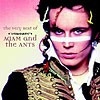
 - Booklet-1-square-100x100.jpg)
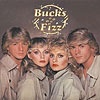
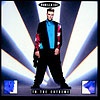
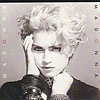

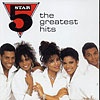


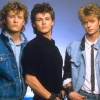
Do You Remember Rick Astley?
Do You Remember Rick Astley?